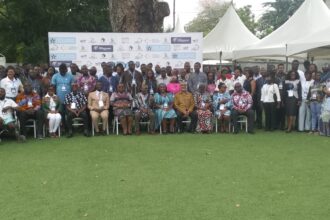In spite of efforts being put in place by governments, Development partners, civil society and other relevant stakeholders to educate the populace on gender based- violence, there is no denying the fact that the menace continue to prevail in the country, particularly in most rural communities and in the northern part of Ghana.
In 2008,38.7 percent of Ghanaian women between the ages of 15 and 49 who had ever been married had experienced physical, emotional or sexual violence by a husband or partner at some point in their lives.
According to the World Health Organisation (WHO), women are more likely to suffer from depression, anxiety, mental challenges, eating problems and sexual dysfunction as a result of violence.
Violence against women and girls is a grave violation of human rights. Its impact ranges from immediate to long-term multiple physical, sexual and mental consequences for women and girls, including death.
It negatively affects women’s general well-being and prevents women from fully participating in society and has tremendous costs, from greater health care and legal expenses and losses in productivity, impacting national budgets and overall development.
Domestic violence, in the form of physical or sexual violence, is experienced by 35 per cent of women globally during their lifetime. Emotional abuse and controlling behavior is experienced by 75 per cent of women across the world.
The problem of domestic violence is more prevalent in rural areas and the northern regions of Ghana. According to a 2011 survey by MICS, 60 percent of Ghanaian women believe that husbands are justified in beating their wives, for a variety of reasons.
Ghanaian women who are poorly educated and from poor socioeconomic backgrounds are more likely to believe domestic violence is justified.
Domestic violence causes immediate devastating consequences to those affected: physical injuries, mental health problems and poor well-being among others. But it also has long-term, far-reaching effects, including persistent inequalities between men and women, which limit women and girls’ abilities to fulfil their potentials.
Those who experience domestic violence have longer-term poor physical and mental health, higher risk of contracting HIV and sexually transmitted diseases, and restricted choices in terms of accessing education and jobs. It is also likely that they will have lower levels of education, income and productivity.
Prevalence of sexual and gender-based violence, particularly affecting girls and young women remains high. More than half of Violence against Children cases reported to the DOVVSU in 2013 was defilement.
Ghana’s 2016 study shows that, about 39.4 percent of children have suffered indecent assault, 17.9 percent defilement, 8% rape and 5.4 percent had experienced incest.
By: Latifa Carlos














